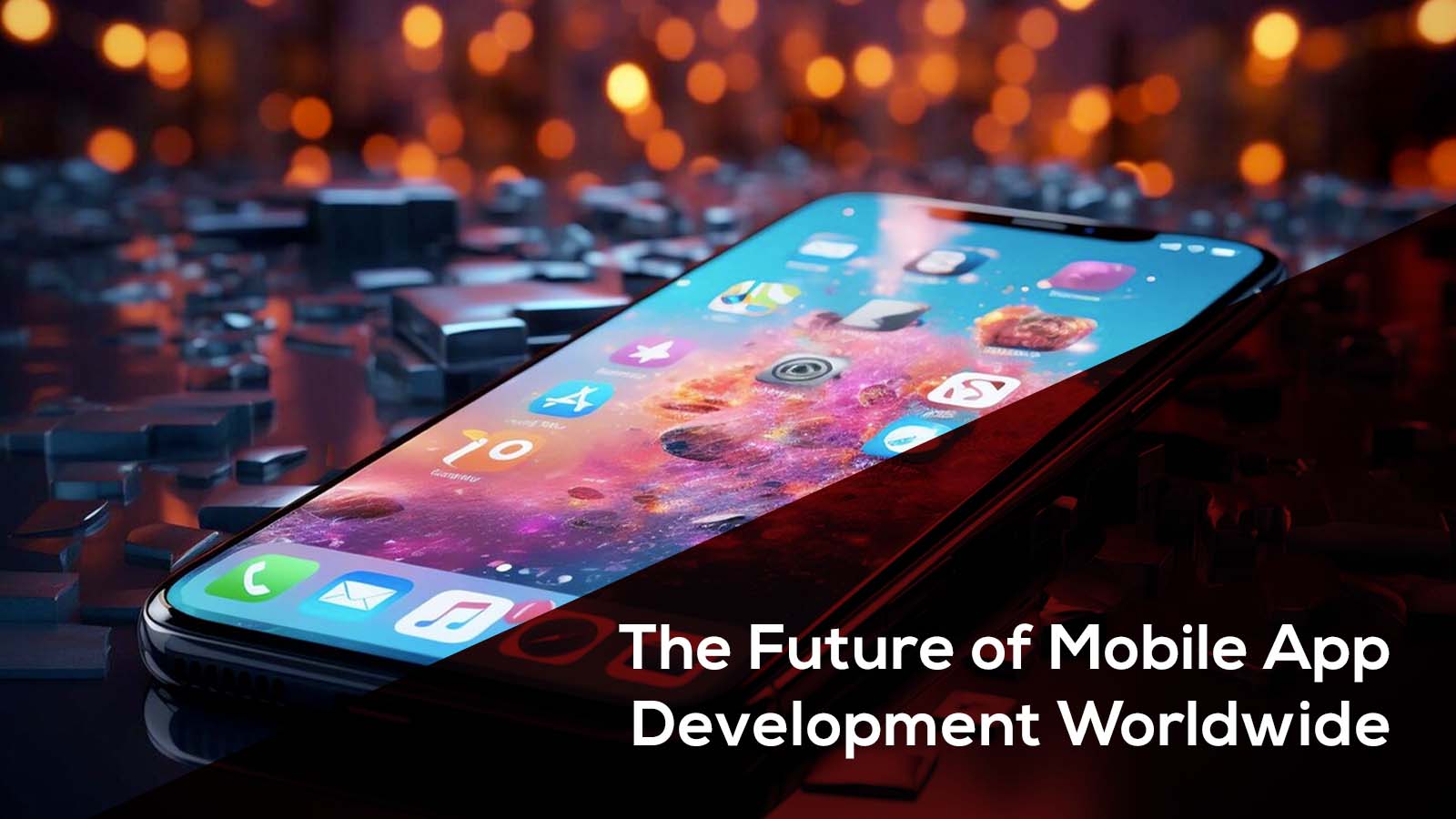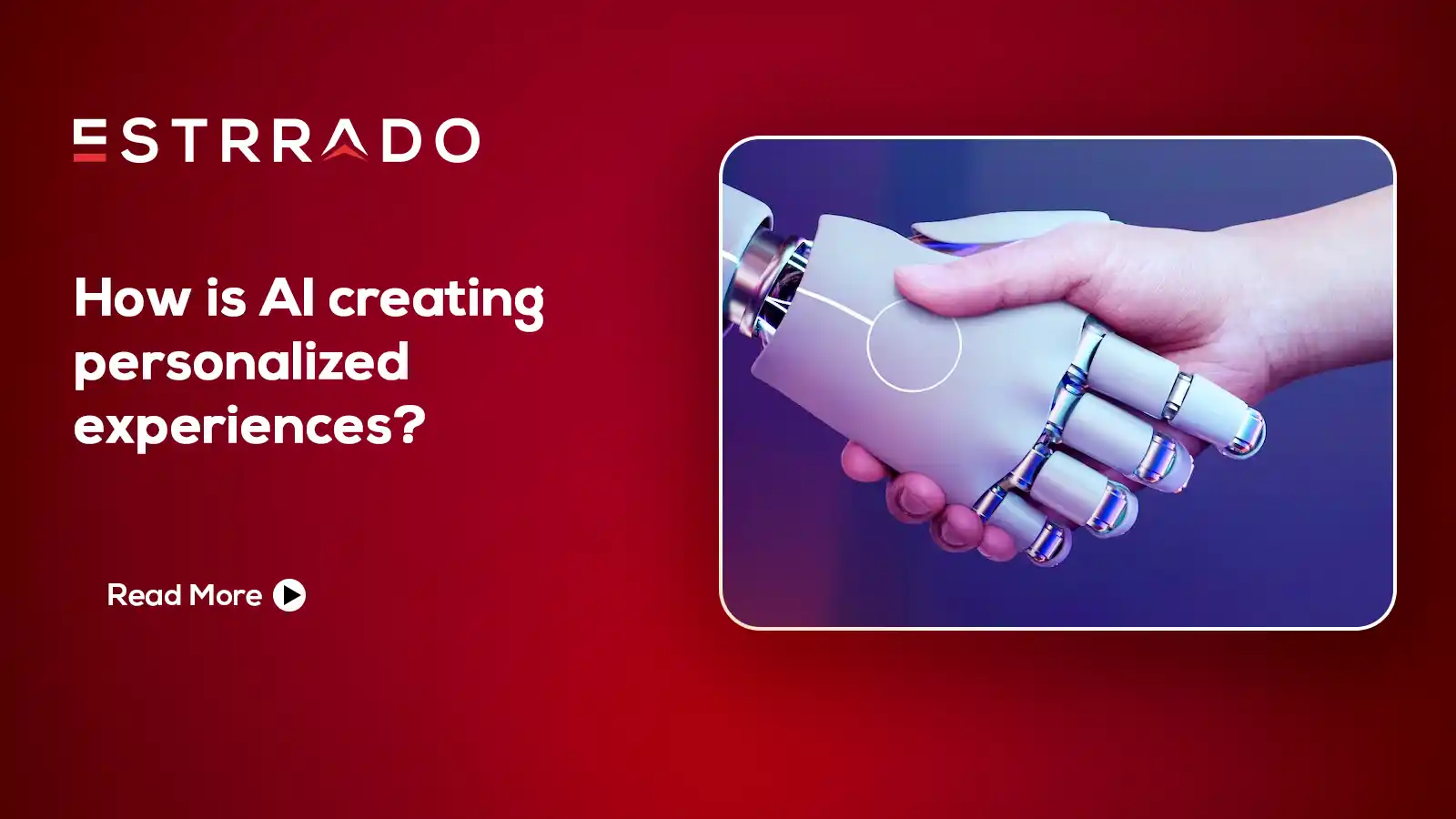Introduction
In a world driven by innovation, the future of mobile app development holds promises of transformative changes, pushing the boundaries of what we thought was possible. As technology continues to evolve, the landscape of mobile applications is undergoing a revolutionary shift. From enhanced user experiences to the integration of cutting-edge technologies, the future of mobile app development seems endless.
Embracing the Evolution: A Paradigm Shift in Mobile App Development
The incorporation of Artificial Intelligence (AI) and Machine Learning (ML) is set to redefine user interactions, offering personalized experiences that adapt to individual preferences.
According to a recent survey by Gartner, by 2025, over 50% of mobile applications will leverage AI and ML for enhanced user experiences. This signifies a monumental shift towards intelligent applications that understand and cater to user needs, making interactions more intuitive and engaging.
The Rise of Augmented Reality (AR) and Virtual Reality (VR)
The integration of augmented and virtual reality technologies is set to transform the way users perceive and interact with mobile applications. From immersive gaming experiences to practical applications in fields like healthcare and education, the possibilities are limitless.
A report from Statista predicts that by 2023, the AR market will reach a staggering $18.8 billion, emphasizing the widespread adoption of this technology. Industries such as real estate, retail, and education are at the forefront, utilizing AR and VR to create compelling and realistic user experiences.
5G Revolutionizing Mobile App Development
5G is a game-changer in the mobile app development arena. With faster internet speeds and lower latency, 5G opens up new possibilities for real-time applications and services. The seamless connectivity it provides is the backbone for the Internet of Things (IoT) and other applications that demand high-speed data transfer.
A study by Ericsson Mobility Report estimates that by 2026, there will be over 3.5 billion 5G subscriptions globally. This indicates the widespread adoption of 5G technology and its integral role in shaping the future of mobile app development.
Security in the Spotlight
As technology advances, so do the challenges. With an increasing number of cyber threats, developers are focusing on implementing advanced security features to safeguard user data and privacy.
According to a report by IBM, the global average cost of a data breach is $3.86 million. This figure shows the importance of prioritizing security in mobile app development. From biometric authentication to advanced encryption, developers are adopting multifaceted approaches to protect user information.
The Role of Progressive Web Apps (PWAs)
In the future, Progressive Web Apps (PWAs) are set to bridge the gap between web and mobile applications. Offering the best of both worlds, PWAs provide users with a seamless experience, eliminating the need for downloads and installations.
Research by Google suggests that PWAs can improve conversion rates by up to 36%. This emphasizes the user-centric approach of PWAs, providing a faster and more engaging experience.
Conclusion
The future of mobile app development is a journey into a realm of possibilities. From the integration of AI and ML to the widespread adoption of AR and VR, the technological landscape is evolving at a rapid pace. The 5G revolution and the emphasis on security underscore the industry’s commitment to delivering cutting-edge and secure experiences. Therefore, the future of mobile app development holds tremendous potential.
Frequently Asked Questions (FAQs)
What are the key trends shaping the future of mobile app development?
The future of mobile app development is influenced by several key trends such as 5G technology, integration of Artificial Intelligence (AI) and Machine Learning (ML), and Augmented Reality (AR) and Virtual Reality (VR).
How is 5G technology impacting the future of mobile app development?
5G enables developers to create more sophisticated and data-intensive applications. This includes high-quality video streaming, real-time collaboration, and seamless cloud integration, ultimately enhancing the overall user experience.
How will Artificial Intelligence (AI) and Machine Learning (ML) shape the future of mobile apps?
AI and ML are set to play a pivotal role in the future of mobile app development. These technologies enable apps to learn and adapt based on user behavior, providing personalized experiences. From predictive analytics to chatbots offering real-time assistance, AI and ML enhance efficiency, user engagement, and overall app functionality.
What role do Progressive Web Apps (PWAs) play in the future of mobile app development?
Progressive Web Apps offer the best of both web and native app experiences, allowing users to access content offline and providing a responsive and engaging interface. With increased speed and decreased data usage, PWAs are expected to become more prevalent in the future of mobile app development.
How are security concerns being addressed in the future of mobile app development?
As mobile apps become more integrated into daily life, security is a top priority. The future of mobile app development includes robust security measures such as biometric authentication, advanced encryption, and secure APIs. Developers are focusing on creating apps that not only provide excellent user experiences but also ensure the protection of sensitive user data.
What impact will Augmented Reality (AR) and Virtual Reality (VR) have on mobile app development?
AR and VR are poised to revolutionize the way users interact with mobile apps. From gaming and entertainment to education and training, the integration of AR and VR offers immersive experiences.
How is the Internet of Things (IoT) influencing the future of mobile app development?
IoT is creating a more interconnected world, and mobile apps are at the forefront of this transformation. In the future, mobile apps will increasingly communicate with IoT devices, enabling users to control and monitor smart home devices, wearables, and more. This seamless integration enhances the overall user experience and expands the functionality of mobile apps.
What programming languages are likely to dominate the future of mobile app development?
While languages like Java, Swift, and Kotlin are currently popular, the future may see an increased emphasis on languages that support cross-platform development. Flutter and React Native, for example, enable developers to write code once and deploy it on multiple platforms, streamlining the development process and reducing time-to-market.
How are user expectations driving the evolution of mobile app development?
User expectations are a driving force in shaping the future of mobile app development. As users demand more personalized, seamless, and feature-rich experiences, developers are incorporating advanced technologies to meet these expectations. Continuous feedback loops, beta testing, and user analytics play crucial roles in understanding and adapting to user preferences.
What role do user interface (UI) and user experience (UX) design play in the future of mobile app development?
UI and UX design will continue to be paramount in the future of mobile app development. As apps become more sophisticated, the importance of intuitive and aesthetically pleasing interfaces cannot be overstated. Design thinking, user-centric approaches, and accessibility considerations will drive the creation of apps that not only function well but also delight users.








